Online Lesbian Counselling | Best Therapist For Lesbian Help
- Affordable and confidential lesbian counseling sessions
- Video calls or chat sessions with Counsellors/ Psychologists specialized in lesbian issues
- Improve your mental wellbeing whenever and wherever you want.
Begin Therapy
Consult online with best Therapist
"*" indicates required fields
A ‘Better’ Model for Lesbian Counselling
Mantracare is with you on the journey to deal with your lesbian identity. We will help you right from knowing the root causes of your lesbianism to learning healthy coping mechanisms. Our therapies are 100% online and are conducted via video call or messages. So, feel free to take sessions wherever, whenever you need it
Specialized Therapists
As per your story and case, we assign the best counselors experienced in lesbian issues. They work with you proactively to understand and address the root cause of your lesbian, hopelessness, and persistent sadness.
Affordable & Effective
We believe that therapies should be driven more by “Need” than “ability to pay”. Our online sessions are 90% less expensive than face-to-face therapy. Online counseling starts at just $10.
Lesbian Self Care
We provide you continuous help with self-care tools, mental healing videos, chat groups, meditations, breathing exercises, and more. Our therapists are available 24/7 via messages to provide care, whenever and wherever you need it.
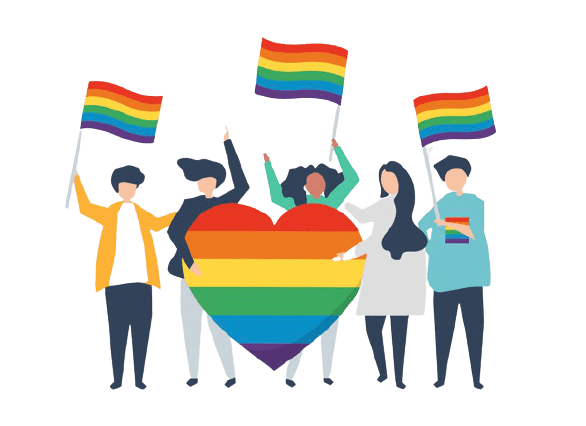
Best Lesbian Counselling, Now in Your Pocket
Our therapists or counselors are available in all parts of the world, accessible via an easy-to-use mobile application. Our matching experts take your preferences into consideration and connect you with therapists specialized in lesbian issues. Moreover, there are hundreds of free self-help tools on our app, available 24×7.
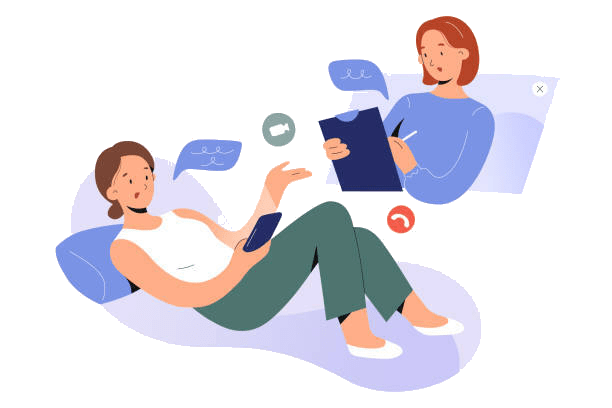
How It Works
After filling out our questionnaire, you will be matched with a lesbian counselor based on your needs and preferences. You and your counselor will get your own secure and private “therapy room” where you can message your counselor at any time wherever you are. You can also schedule a session so speak live with your counselor over video or phone.
You can write or talk about lesbians, the things going on in your life, ask questions, and discuss the challenges you’re facing and your counselor will provide feedback, insights, and guidance. Together you’ll work towards making a positive change in your life, accomplishing your goals, and overcoming your lesbian.

Signup for lesbian counseling
Just fill up a 5-minute online form to tell us about your lesbian symptoms and treatment expectations.

Meet your Therapist
Based on your preferences and neet, we will connect you with lesbian counselors that are available 24/7 to you via call or chat.
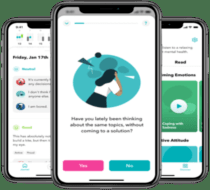
Connect to our app
Heal yourself with video or chat counseling sessions available in the app. Access helpful self-care tools on our app to help you deal, and take control of your life.
Meet the best Lesbian Therapists
MantraCare psychologists help you counter lesbian through a combination of positive conversations, exercises, and meditations. Our lesbian therapy services are the better traditional face-to-face counseling in multiple ways:
- Over 5,000 counselors & therapists with expertise in lesbian and other areas
- All counselors are licensed, trained, accredited, and highly experienced
- Match with an available counselor who is the best fit for your lesbian needs
- Unlimited private one on one communication with your therapist
- Gain access to constructive, educational group webinars on lesbian
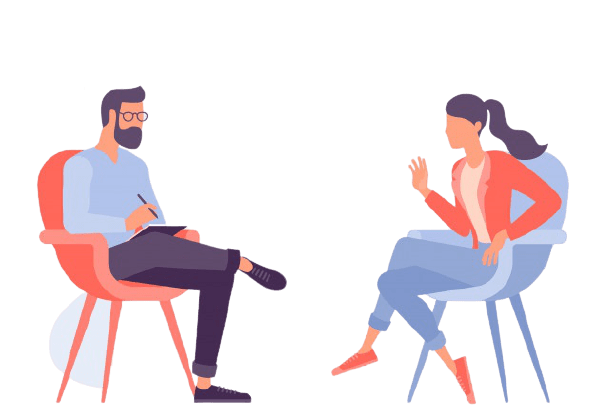
A Guide on Lesbian Counseling
Understanding Lesbianism
In the 20th century, the term “lesbian” was created to separate women from having a common sexual orientation. Over the course of history, the freedom or independence of women in gay partnerships has not been the same as males, although in many countries women have not been punished with the worst punishment. Lesbian interactions are typically considered harmless until one of the participants tries to claim advantages that males normally enjoy. Thus, nothing has been preserved throughout history to accurately describe how females exhibited their homosexuality. When earlier sexologists began categorizing and describing homosexual conduct at the end of the 19th century, hindered by insufficient knowledge of gay or female sexuality, lesbians were distinguishable as women who did not play their gender roles. They categorized them as mentally sick – a label that in the global scientific community has been overturned since the late 20th century.
Types of Lesbians
The world of lesbians has its own distinct ecology in which many different sorts of dykes exist. There are butches or more masculine-leaning lesbians. Women or more female lesbians are there. And we have various gradients in these categories, such as a soft butch, a sweeper or more feminine butch, a “futch” a woman and butch person, and a high woman, and an Uber-woman, alias a lesbian lipstick.
Symptoms of Lesbianism
- You think about how you can’t wait till it’s done to phone your best friend— when you’re on a date with a boy. Not to inform her of the date, but to listen to her voice and her day. And then to plan to visit her quickly. You arrange a second day before all this with the guy.
- When you watch a movie, your gaze is pulled to the female protagonist rather than the gorgeous guy. You can’t stop thinking about how lovely she is, and you keep watching the movie just to see that one scene where the camera zooms in on her slightly parted lips and all you can think about is kissing them.
- When you’re out on the town or at the mall, you’re more likely to see girls first, and then you’ll notice a man. This is something you do without even thinking about it. It’s a natural reaction.
- For connections, discussions, support, and fun, you seek out girls and women. Except for a few sensitive or homosexual males, all of your best pals are women.
- “Am I a lesbian?” you’ve wondered. “Do you think I’m gay?” “Do you think I’m bisexual?” It’s an indication that you’re lesbian or bisexual if you’re asking yourself these questions. People who aren’t attracted to the same sex don’t usually question whether or not they are gay.
- You’ve had a wonderful connection with a woman. Now that it’s over, you’re not sure if it was a one-time event or if you’re a lesbian for real. Even if you’ve dated guys before or afterward, chances are you may fall in love with a woman again if you’ve had one relationship with a woman.
- When you read lesbian romance or watch lesbian love movies, you experience tingling emotions. When a pair kisses for the first time in a romantic film or a lesbian romance novel, you feel something deep inside. You envision yourself in a similar position and feel pleased and content on the inside. You feel a sensation of longing that is reminiscent of the love heroines.
- Although you don’t have to have kissed or had sex to know whether you’re a lesbian, if you have and enjoyed it, that’s a good indicator. It’s a particularly excellent indicator if you feel compelled to do more than a kiss when you’re kissing.
Causes of Lesbianism
- The reasons why someone is lesbian, gay, straight, or bisexual are unknown. However, research suggests that biological variables that begin before birth are likely to play a role in sexual orientation.
- People do not choose who they are attracted to, and no amount of counseling, treatment, or persuasion can change their sexual orientation. You can’t also “make” someone gay. Exposing a guy to things typically designed for girls, such as dolls, will not make him gay.
- At an early age, you most likely become aware of who you are drawn to. This does not imply that you experienced sexual sentiments; rather, it indicates that you were able to recognize persons you found beautiful or loved. Many people claim that they were lesbian, gay, or bisexual before they reached adolescence.
- Although sexual orientation is typically established early in childhood, it is not uncommon for your wants and interests to change over time. This is referred to as “fluidity.” Many individuals, including sex researchers and scientists, feel that sexual orientation is like a scale, with one end being totally homosexual and the other being entirely straight. Many individuals would be in the center, rather than at the extremes.
Lesbian Counselling
Many lesbians, gays, bisexuals, transgenders, and queer (or questioning) people seek counseling for the same reasons as non-lesbians (e.g., lesbian, anxiety, bereavement, couples therapy, work stress, and so on). While some concerns have nothing to do with sexuality, gender, or identity, the lesbian community has its own set of difficulties.
According to research, lesbians seek mental health therapy at a greater rate than their heterosexual counterparts. This might be due to the daily stigma and prejudice that lesbians endure from society, family members, friends, coworkers, and even students.
Lesbians have a greater incidence of lesbians, anxiety, and other mental health issues as a result of prejudice. Lesbians are also more likely to have a drug addiction issue, engage in self-harming activities, and/or consider suicide. As a result, it’s no surprise that this group seeks mental health treatments at greater rates. In addition to the impacts of stigma and prejudice, lesbians frequently seek mental health treatment for:
Gender dysphoria is a psychiatric disorder in which an individual’s gender identity and expression do not match the gender assigned at birth, according to the Diagnostic and Statistical Manual of Mental Disorders (5th ed.). Gender dysphoria may be distressing and have a negative impact on a person’s mental health.
The term “sexual identity problems” can apply to a variety of difficulties. The emotions, ideas, sensations, and fantasies that contribute to a person’s sexual or romantic attraction to another person are referred to as sexual identity (or sexual orientation). Lesbians frequently have times of self-doubt about their sexual identity, which may be confusing and stressful. The “coming out” process, as well as dealing with the responses of friends and family, is also relevant to the lesbian community and sexual identity concerns.
10,000+ Happy & Healed Lesbian patients

“I was ecstatic that I chose Mantra Care after my first session. The therapist was really friendly and put me at ease. I never felt rushed with him since I trusted him with whatever I said. He gave me the most essential lesson of my life: I am in control of my own future, and everything is up to me. Every time I left a session, I was astounded by the results.”
Kathy, 1 year on MantraCare
500+ Lesbian Counselors from across the world







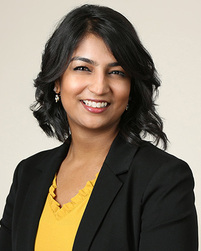
Our therapists take care of your ‘unique’ needs
Not all mental health problems are the same. Different types of problems require different treatments. At MantraCare, 5000+ therapist’s cover a range of specialities to meet your needs:
Frequently Ask Questions
Online lesbian therapy has been proven to have the same effectiveness as in-person therapy. There are multiple reasons why online counseling proves to be better:
No need to travel to a psychologist, sit on the same couch, and talk with the same therapist. Online lesbian therapy doesn’t require that you leave the comforts of your home or office. Talk to your therapist in your pajamas, sitting on your bed!
Most of us live hectic, unbalanced lives wherein scheduling a traditional therapy session becomes prohibitive. Online lesbian therapy allows you to set the time, location, and initial direction of the therapeutic relationship. It’s the freedom that puts you, the client seeking mental health solutions, first.
We offer a vast array of free self-help tools such as stress & anxiety control exercises, relaxation techniques, mindfulness exercises, and helpful blogs. We also offer mental healing videos, chat groups, breathing meditations, and more, available 24/7 at no charge. However, there is a nominal price for lesbian counseling. That said, we provide one of the most affordable ways to tackle lesbians.
The cost of lesbian counseling through MindMantra ranges from $15 to $40 per week. Unlike traditional in-office therapy which can cost over $150 for a single session, your MindMantra membership includes unlimited text, video, as well as audio messaging.
Non-binary individuals use a variety of words to identify themselves, with non-binary being one of the most popular. Genderqueer, agender, bigender, and other words are also used.
Ambiguous genitalia is an uncommon disorder in which the external genitals of a newborn do not appear to be unmistakably male or female. The genitals of a baby with ambiguous genitalia may be underdeveloped or the kid may exhibit features of both sexes.
The term “hermaphrodite” refers to an organism that can generate both male and female gametes in biology. Some persons with intersex characteristics use the word “intersex,” while others choose to use alternative terms.
The baking soda gender test is a simple at-home procedure that includes mixing a pregnant woman’s urine with baking soda and watching it bubble. The presence or absence of fizzes in the urine is thought to indicate whether the baby is male or female, respectively. The purpose of the baking soda gender test is to detect the baby’s sex, not its gender.

